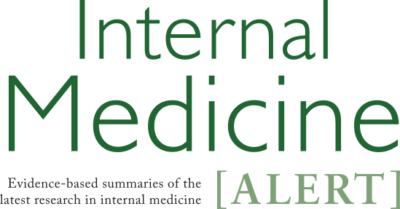
Internal Medicine Alert – February 15, 2024
February 15, 2024
View Issues
-
Is Brain Impairment Following COVID-19 Hospitalization Worse Than for Other Severe Illnesses?
The authors of this prospective cohort study with matched controls found that long-term brain health following severe COVID-19 hospitalization was impaired but was similar to hospitalization from other severe diseases.
-
Nitrates in Food Reduce Cardiovascular Risk
Dietary nitrates, such as in beetroot juice, improve the cardiovascular risk profile, lowering blood pressure and enhancing endothelial function.
-
A Comparison of Acute Migraine Therapies Using Big Data
In a big data-driven observational study that compared 3 million treated migraine attacks captured from a migraine diary smartphone app, triptans were found to be the most efficacious treatment class. Among the triptans, eletriptan had the highest rate of success. Consistent with clinical practice and recent consensus statements, the success of triptans was followed by ergots and antiemetics.
-
Safety and Tolerability of Inclisiran
A pooled analysis of seven relatively short-term ORION studies of inclisiran vs. placebo for lowering low-density lipoprotein cholesterol that assessed safety and tolerability for up to six years showed that inclisiran has similar rates of adverse events, excluding injection site reactions, as placebo treatment and is associated with fewer major adverse cardiovascular events.
-
Berdazimer Topical Gel (Zelsuvmi)
The U.S. Food and Drug Administration has approved the first and only prescription drug for the home treatment of molluscum contagiosum. Berdazimer, administered with a hydrogel, is a nitric oxide-releasing agent with antiviral properties.
-
Why the Pause?
The ECG in the figure is from an older woman who complained of a number of short-lived “episodes” beginning the day this tracing was recorded.
